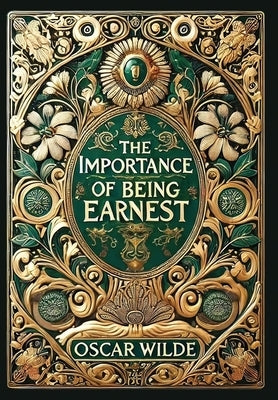Sale 10% Off Your First Order
Sale 10% Off Your First Order
Movies & TV
Toys & Collectibles
- Home
- The Importance of Being Earnest
Description
About the Author
Wilde, Oscar: - "Oscar Fingal O'Flahertie Wills Wilde (1854-1900) was an author, poet and one of the best-known playwrights in the English canon. His private life is widely discussed, since his sexuality and relationship with Lord Alfred Douglas led him to his being convicted for 'gross indecency'. He was sentenced to two years' hard labour, and while in prison he wrote De Profundis, a letter to Douglas describing the trials of his incarceration, which was eventually published in expurgated form. He is best remembered today for his short-story collections for children, The Happy Prince and A House of Pomegranates, his poetry, especially The Ballad of Reading Gaol, his novel Dorian Gray and his plays - particularly Salomé and his drawing-room and society comedies Lady Windermere's Fan and The Importance of Being Earnest."
Related Products
You May Also Like
Recently Viewed Products
Related Products
Recently viewed products
Shopping cart
close
-
WHAT ARE YOU LOOKING FOR?Search
- Home
- Movies & TV
- Music
- Toys & Collectibles
- Video Games
- Books
- Electronics
- About us
- Castle Chronicles
- Contact us
- Login / Register




